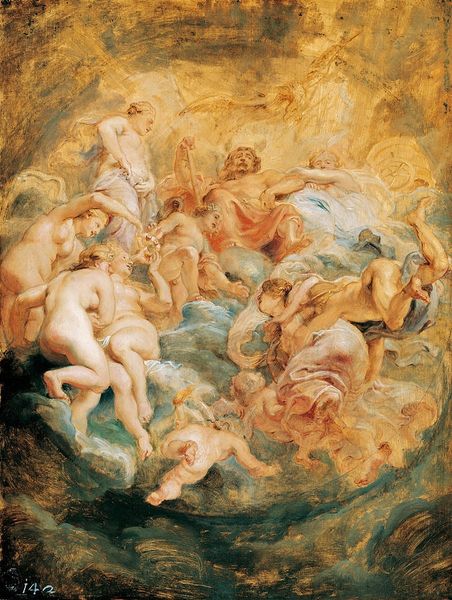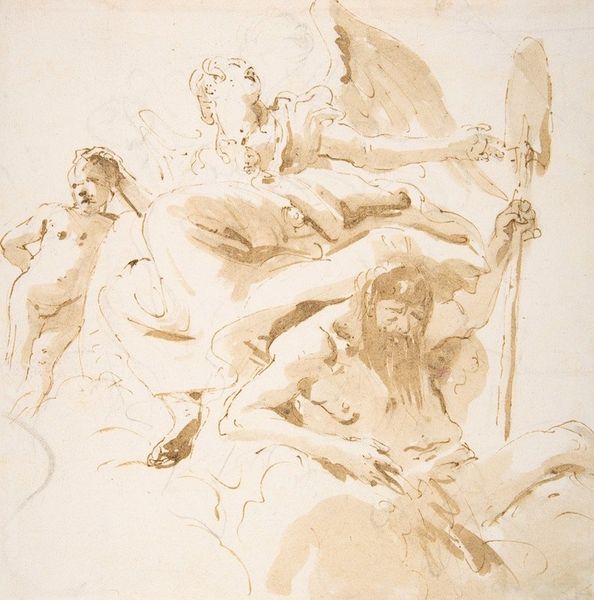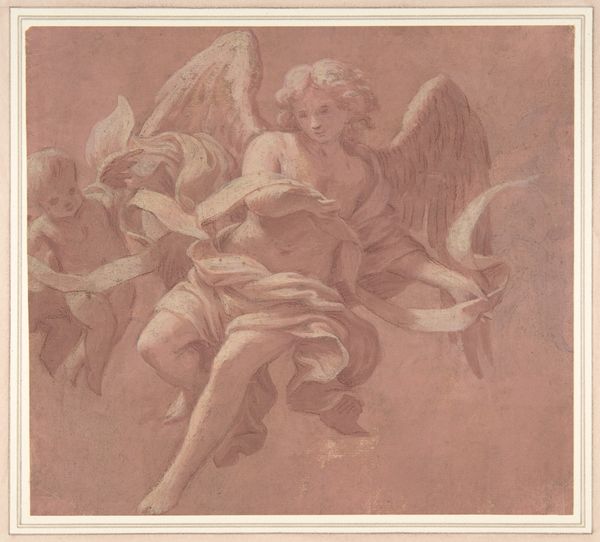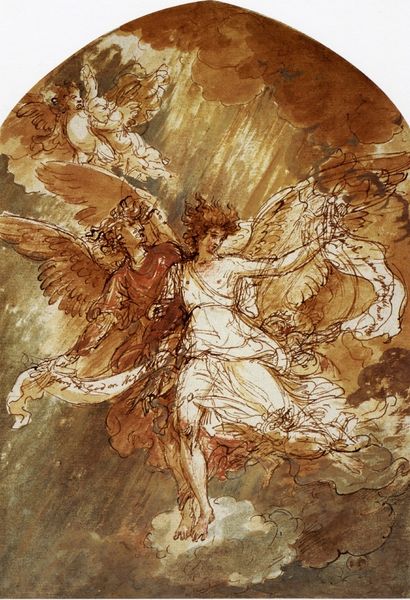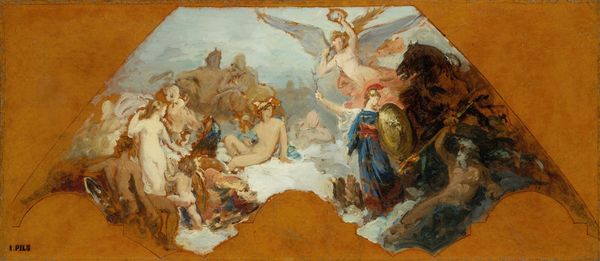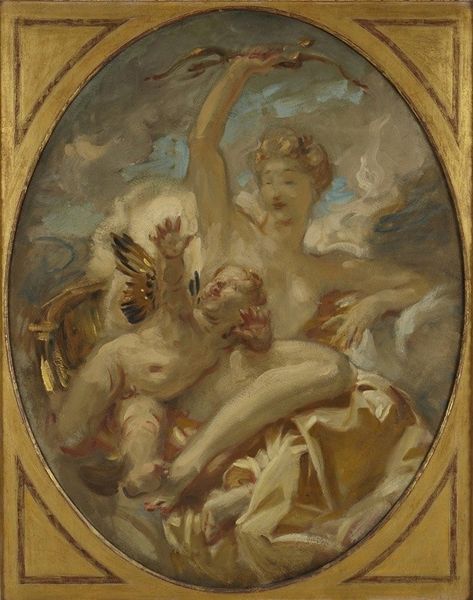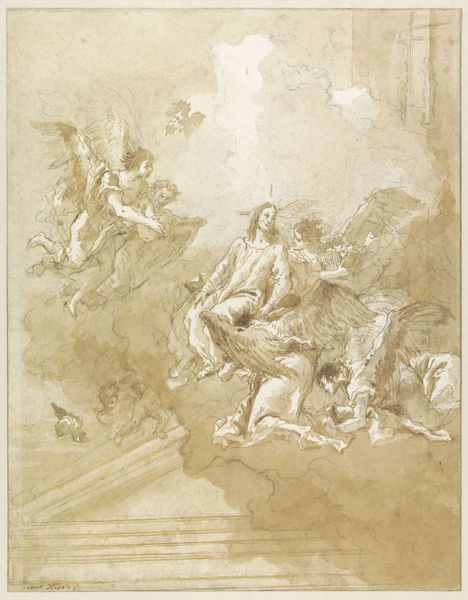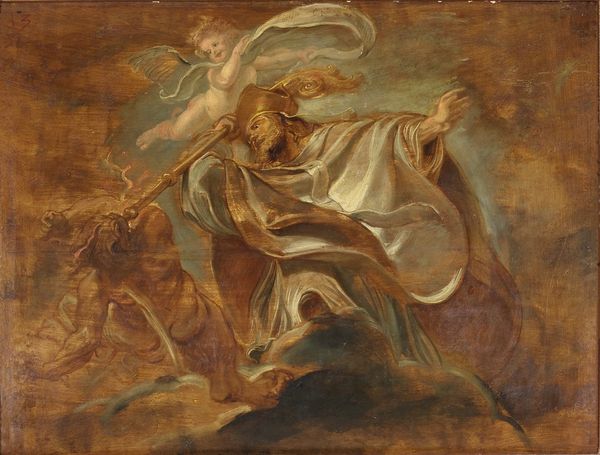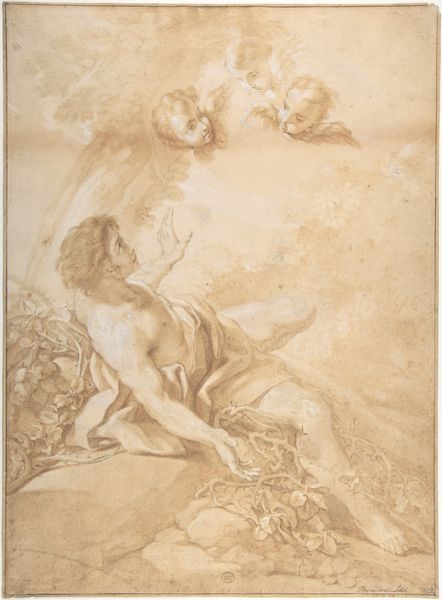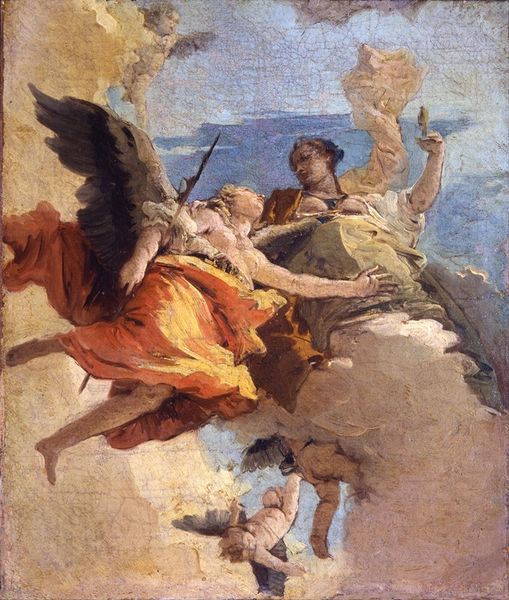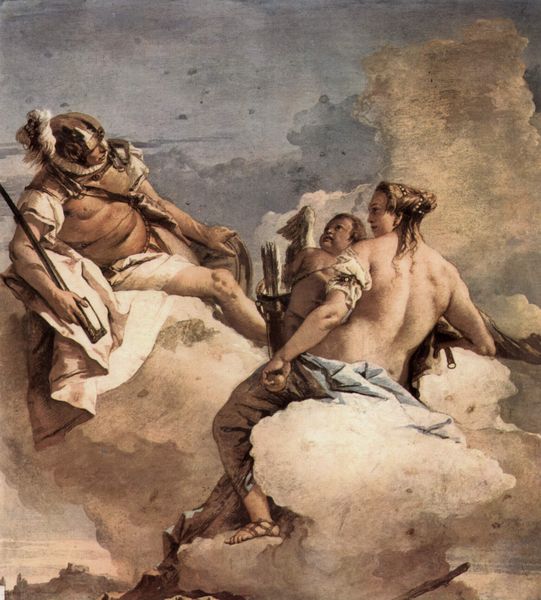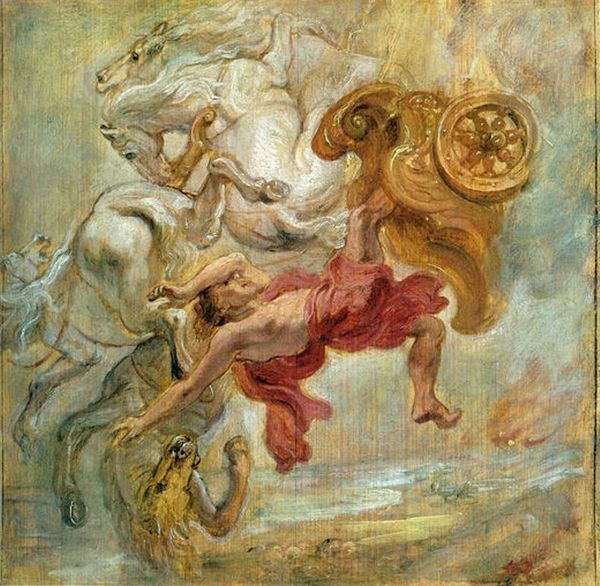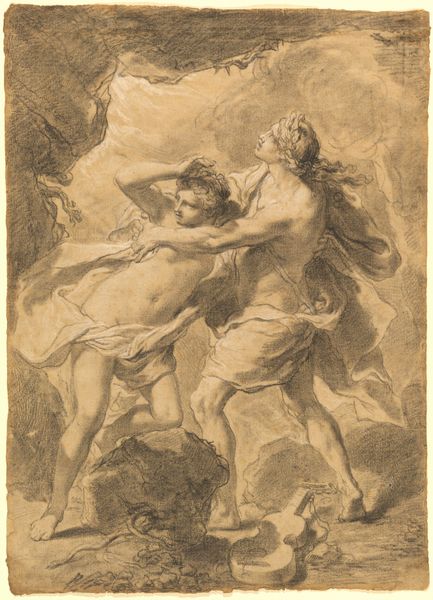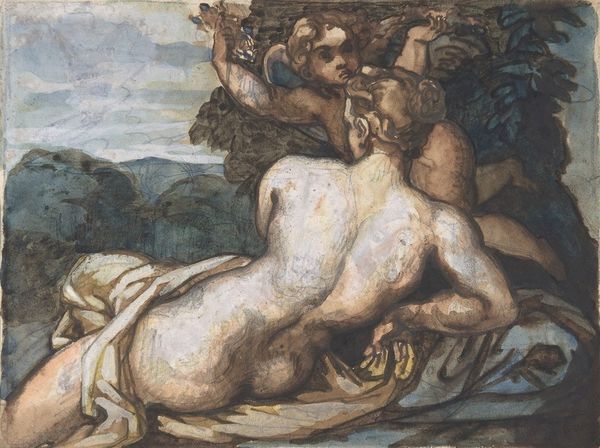
painting, oil-paint
#
allegory
#
baroque
#
painting
#
oil-paint
#
figuration
#
oil painting
#
romanticism
#
mythology
#
history-painting
#
rococo
Copyright: Public Domain: Artvee
Curator: Jean-Honoré Fragonard’s oil painting, titled "Le Maître du Monde" or "The Master of the World," invites a whirlwind of associations. What catches your eye first? Editor: The dynamism, certainly. There’s an upward thrust, almost a diagonal trajectory established by the figure's outstretched arm, countered by his grounded pose among what appears to be billowing clouds. He gives off a potent yet unsettling feeling of floating power. Curator: It is unsettling! Given its allusive title, one wonders about the specific moment or story Fragonard intends to capture here. There isn't a clear consensus on its intended narrative, which could also hint at a preliminary sketch for a grander composition. The inscription at the upper left says, "Fragonard after his return from Italy", linking it to his artistic development following his stay at the French Academy in Rome. Editor: Italy. Of course. Now the echoes of baroque celestial allegories make perfect sense; The winged figure, draped fabric, it all evokes divine triumph. Even his somewhat androgynous features, recalling figures of Apollo. Yet what sort of "master" holds a seemingly broken lyre? A disrupted harmony? Curator: The lyre certainly complicates a straightforward interpretation of mastery, doesn't it? The social function of music during Fragonard’s time was heavily laden with meanings regarding virtue, moderation, and social harmony. So perhaps we are looking at the fragility of power, or its potential for corruption. And Fragonard painted this during a period of political unrest. What statement could this have meant to those of the era, especially the wealthy aristocrats? Editor: The image could resonate as a critique of aristocratic excess. This painting serves as an allegorical study of cultural and symbolic meanings associated with those in command, wouldn't you agree? In an anthropological sense, power often involves manipulating cultural symbols to uphold certain ideas. Curator: Exactly! We are left with the undeniable sense that symbols don’t exist in isolation. As such, we, the modern viewers, can see how Fragonard captures a figure in transition and conveys these complex, evolving views of governance through it. Editor: I'm now particularly stuck on the way those cultural narratives and symbols shift according to time, location, and socio-political situations. Curator: Indeed! Perhaps there is much about this that remains a mystery, it's power to prompt our ideas and observations across time gives it special place.
Comments
No comments
Be the first to comment and join the conversation on the ultimate creative platform.
